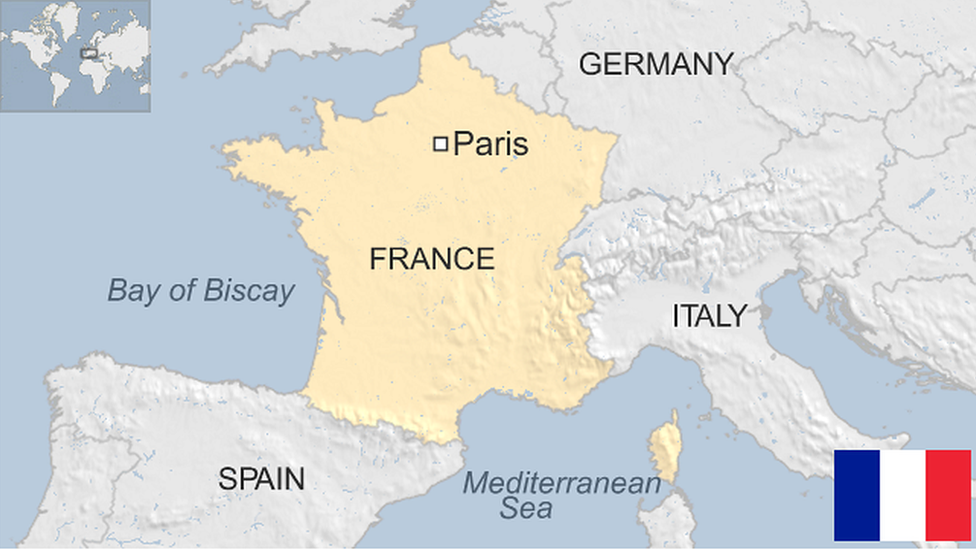'Burkini day' controversy: Media sees political opportunism
- Published
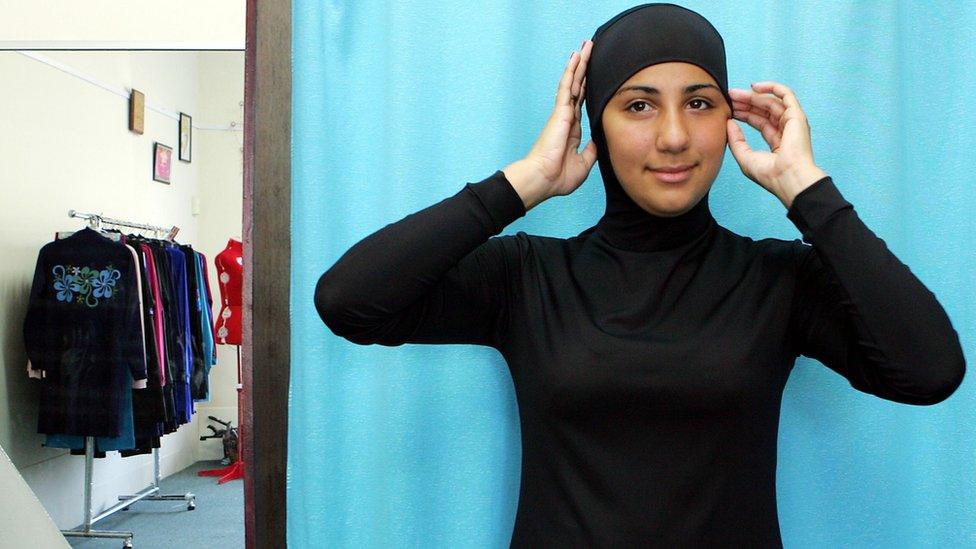
The all-over swimsuit is gaining in popularity
Plans to hire a waterpark in Marseille for a "burkini day" attended only by women wearing the all-over swimming garment have sparked criticism from right-wing politicians, but the French media are on the whole suspicious of their motives.
Le Monde, external says the controversy, which has erupted at a time of high tension in France over the influence of Islam, "is political in origin".
The paper points out that two of the main figures who have objected to the event - Valerie Boyer, a member of the centre-right party The Republicans, and Stephane Ravier, a member of the far-right National Front - will be contesting parliamentary seats in Marseille in 2017.

Le Dauphine's headline (bottom) says "'Burkini' at the swimming pool. What next?"
The left-leaning Liberation, external echoes this line, saying the controversy "has nothing to do with the law" but is being stoked by conservative and far-right politicians seeking to gain political advantage by suggesting that fundamentalism is in the ascendancy in France.
The paper says that a ban on the event could be counter-productive, by creating a sense of injustice.
'Merchants of fear'
In a piece headlined "The burkini day is making waves", Le Parisien, external also points out that there is "nothing illegal" about holding such an event in private.
"But yesterday it caused an outcry, fuelled mostly by elected representatives from The Republicans and the National Front," the paper notes.
Remi Godeau, writing in the liberal Paris-based paper L'Opinion, external, dismisses the controversy as being "as vain as it is empty".
He accuses certain politicians of seeking to make an already tense atmosphere worse by acting as "sorcerer's apprentices, pyromaniacs and fear merchants" and of "stigmatising the entire Muslim community in the run-up to the election".
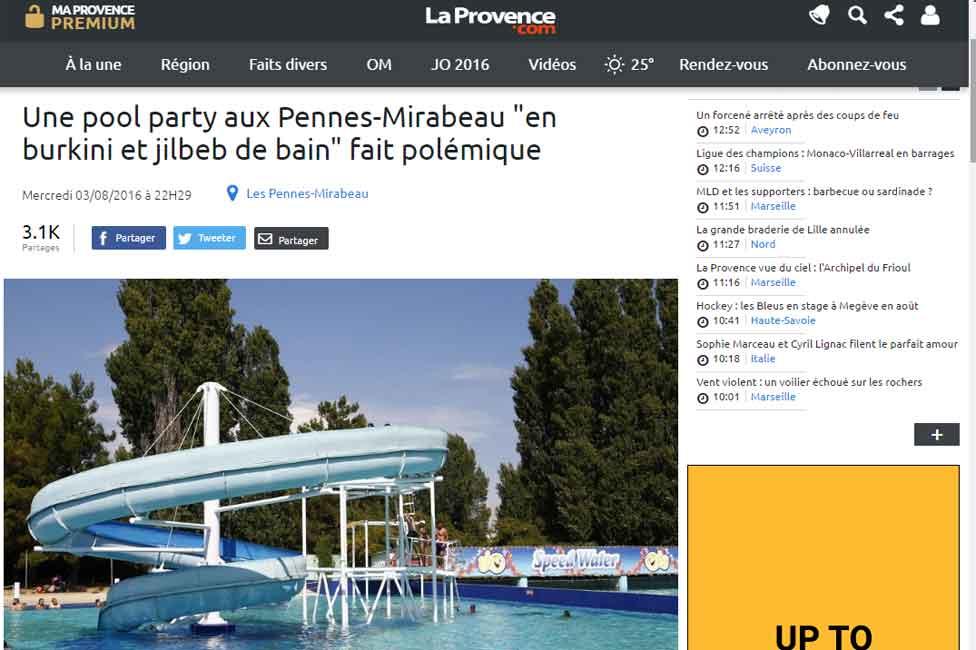
La Provence's headline says that the private "burkini" party has caused controversy
La Provence, external points out that the event has been advertised by its organisers since mid-July, but that the controversy only broke out "after elected representatives on all sides took a stand on the issue".
Meanwhile, the news website of France's main commercial TV channel BFMTV, external declares that "There's no summer break for religious controversies.
"A sign of communalism or the exercise of the right to practise one's religion? This is the question posed by the 'burkini day'."
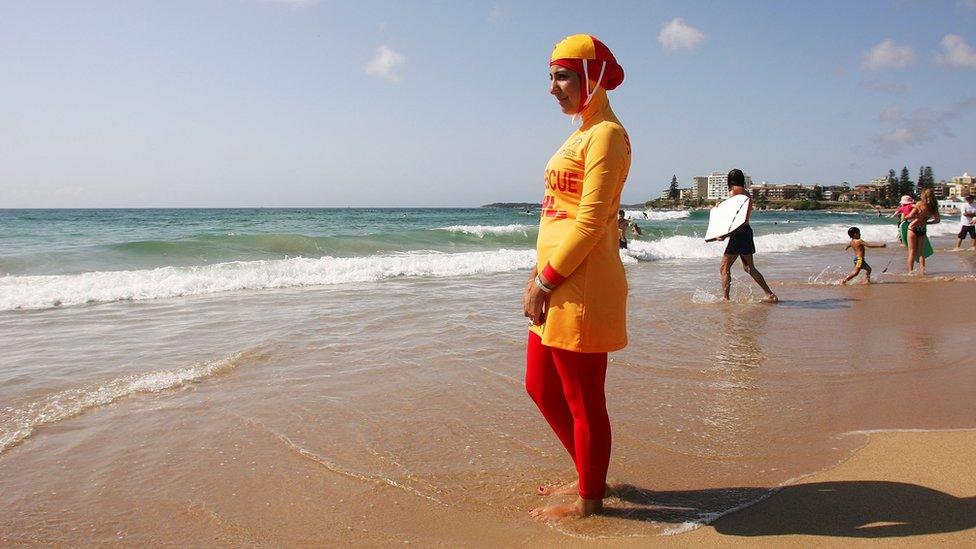
Some life guards in Sydney wear the burkini
However, at least one commentator approves of the idea of a ban on burkini-clad swimming sessions.
Gilles Debernardi, writing in Le Dauphine, external, argues that the authorities should take a stand on behalf of secular values, instead of allowing "a text written in the seventh century… to determine best practice at the swimming pool".
He warns that to do otherwise would permit religious groups "to thumb their noses at the laws of the Republic, which advocate gender equality".
BBC Monitoring, external reports and analyses news from TV, radio, web and print media around the world. You can follow BBC Monitoring on Twitter , externaland Facebook, external.
- Published4 August 2016
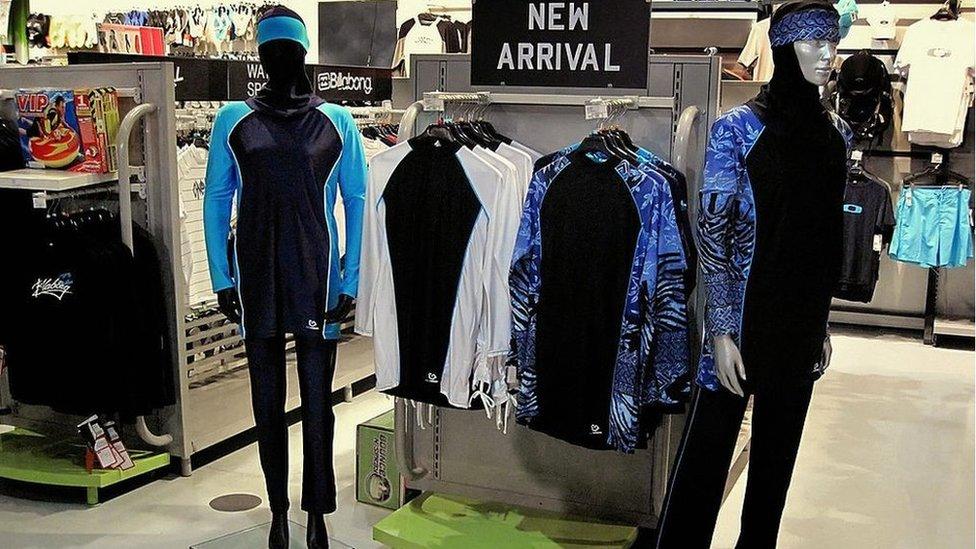
- Published9 January 2024
